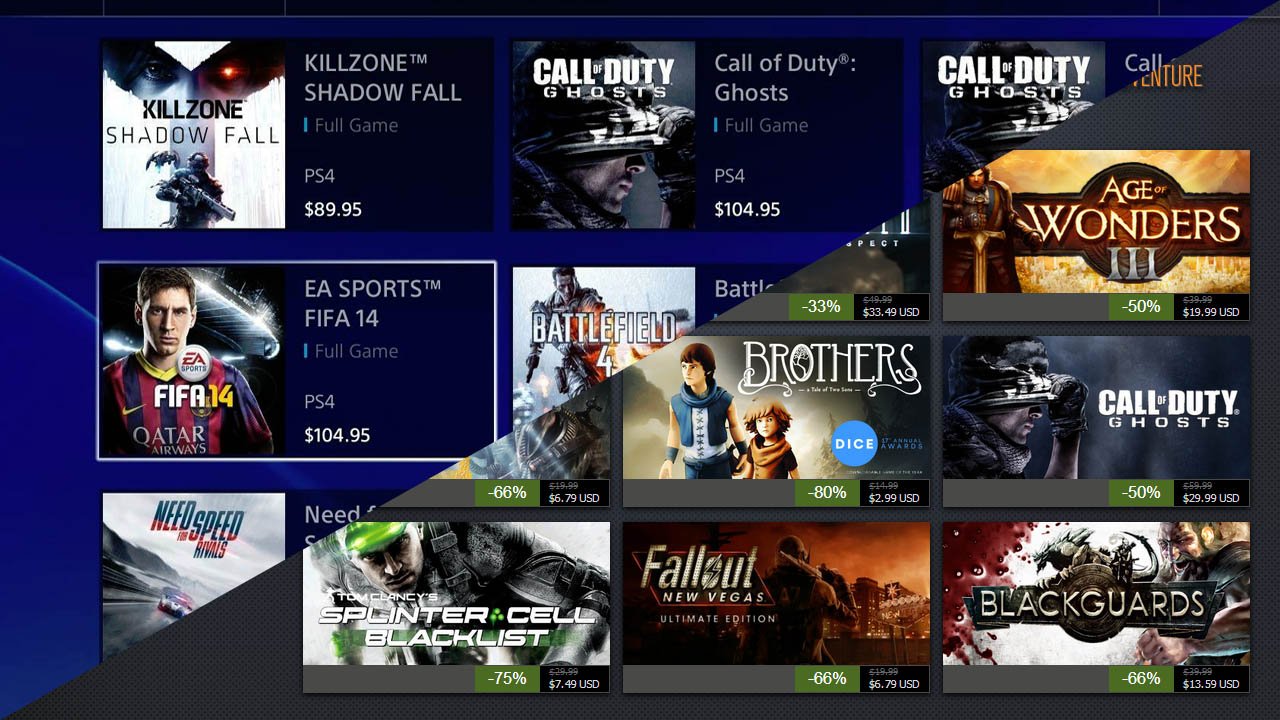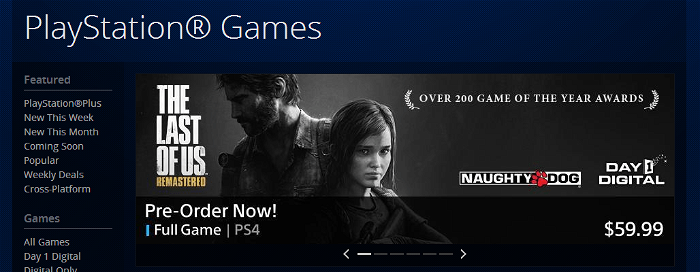You might have missed it over the weekend (since it was very brief), but there was a minor cry of outrage from some PS4 owners when cracks in the concept of digital game purchases began to show. It started much earlier with Sony opening up pre-orders on The Last of Us for the PS4, and charged the full retail, Canadian price of $69.99. That disappointed some people, since this was obviously a “re-issue” of an existing, old game on the PS3, but some fans dutifully opened their wallets and placed a pre-order.
And it really IS a pre-order because when you select a game for pre-order on the PlayStation Store, they don’t ask for a deposit, they charge the full amount of the game IMMEDIATELY to your credit card. You have, in effect, paid full price for the game in advance. That already made some people uncomfortable, particularly since Sony has a policy, in clear, unfriendly print on the PSN store, essentially saying “No cancellations, and no refunds.”
This all came to a head over the weekend when Sony quietly changed the price on The Last of Us from $69.99 to $54.99. Take a price drop of $15.00, throw in a “no refund” policy, and you’ve got a recipe for angry gamers. Fortunately, the tide of bile and anger has already been stemmed by Adam Boyes, who issued assurances that a refund would be coming for those that pre-ordered early. It makes this incident a cautionary tale to gamers that a world with a digital game collection is one that is still fraught with danger.
“.. a digital game put up for sale on a digital store in Canada doesn’t have to cost $70 or even $60. ”
The biggest problem with digital games on consoles is that right now, the creators and publishers of console games still have an intimate relationship with brick and mortar retailers such as EB Games. Because Sony, Microsoft and Nintendo don’t want to jeopardize that relationship, they maintain pricing and sales policies that are similar to what physical stores have, thus negating the very advantages of a game that exists only in digital form.
When you do the math, it’s easy to see that a digital game put up for sale on a digital store in Canada doesn’t have to cost $70 or even $60. The calculations for determining the price of a physical game stem from considerations like cost of duplication to disc, cost of packaging, cost of shipping, distribution to stores, and finally the profit of the store itself in addition to the profit of the publisher. That’s how the gaming industry arrived at a price of $60 for most of its life and more recently $70 in Canada. But with a digital game, NONE of these considerations apply. Once a game is put on a server for people to purchase, the money from that digital purchase is almost pure profit.
In other words, if you buy The Last of Us as a digital game on the PS4, that $54.99 isn’t paying for factory workers to ensure the disc gets pressed, isn’t paying for fuel for the boat to cross the Pacific, and ensuring that the EB Games parent company gets their cut for putting the game on a shelf where everyone can see it. Sony and the developers who made the game get ALL that money from a digital purchase. This is why Valve, with their Steam platform, has been like the Amazon of PC games, aggressively killing off physical sales of games, because they are willing to frequently lower prices on games in exchange for a huge volume of digital sales. After all, what’s going to make more money, selling 500,000 games at $50 for $25 million, or selling two million games at $20 for $40 million? There are clear advantages to a digital format game, but only if that digital nature is fully embraced.
Companies like Sony and Microsoft are doing a bad job of this. They want people to buy digital games, but policies like Microsoft’s draconian DRM policy (which was thankfully reversed) and Sony “locking” people into pre-orders (unless the media makes a circus of it) send a clear message out to customers here; they will be punished in some way for not buying a physical copy. Contrast this with the purchase of a game on Steam where it is not only easy, but often far smarter to buy a digital game and it feels like two completely different worlds. PC gamers have less and less reason to buy physical games thanks to numerous incentives, whereas console gamers see 50 foot roadblocks that sternly ask “Are you SURE you want to do this? ‘Cause I’ll smack you upside the head when you do.”
If console manufacturers want more people to buy games digitally, the key point is to ENCOURAGE them, not DISCOURAGE them. Incentives like pre-loading and frequent sales are the right way to do this. Policies like no cancellation on pre-orders and full, physical retail pricing are disincentives that give gamers no reason to make the jump.
It’s understandable that platform holders like Sony, Microsoft and Nintendo don’t want to bite the physical hand that feeds them, but their efforts to encourage digital purchases will be continually hamstrung by this relationship. Perhaps once retailers like EB Games start neglecting them in the same way that they neglected PC sales in favour of console games, these companies will feel more comfortable with incentivizing digital purchases. Until that day comes, we’re looking at some very mixed messages in the digital console game market.





